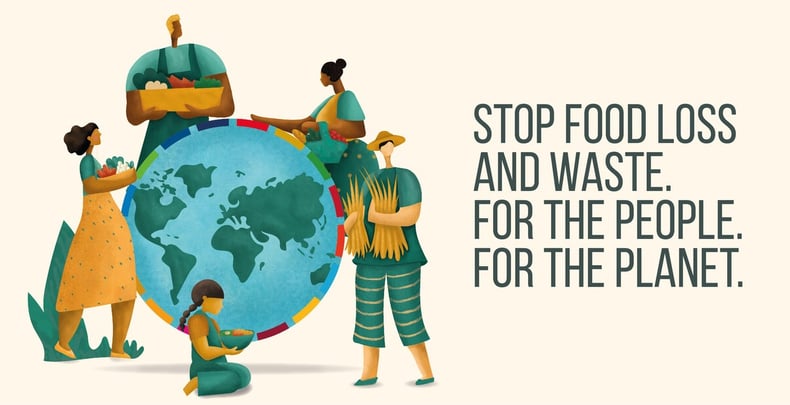International Day of Awareness of Food Loss and Waste 2023: Time for Action

In December of 2019, the United Nations General Assembly designated September 29 as the International Day of Awareness of Food Loss and Waste. UN leaders sought to raise awareness of the scope and scale of the global food waste challenge to speed progress toward Target 12.3 – the global goal of halving food waste by 2030.
As we celebrate the fourth annual observance this week, we remain excited by the fact that food loss and waste is now explicitly recognized on the UN calendar – and we believe this date is only growing in importance.
Leanpath was pleased to join our partners at the Future Food Institute and others in advocating for the this day of awareness at a special session at UN headquarters in New York in July, 2019, where the energy behind this designation was palpable.
To be sure, awareness of the food loss and waste challenge has been rising steadily in recent years, thanks to the work of many NGOs, food organizations, and solution providers in the food space. Many foodservice organizations have set goals for aggressively cutting food waste in operations by 2025 or 2030, and many governments (state and national) are implementing policies and regulations to cut food waste as well. For example, California introduced Senate Bill 1383 to reduce organic waste to landfill by 75% by 2025 and redistribute 20% of edible excess food for consumption. And a bipartisan group in the U.S. just introduced the No Time To Waste Act to accelerate progress toward the United States’ commitment to halving food waste by 2030.
The nexus aspect of food is also gaining traction. The food system is clearly at the heart of the Sustainable Development Goals – food is critically tied to water, energy, land usage, plastics and resource consumption, and ocean health. Continued expansion of agriculture leads to land degradation, ocean pollution, deforestation and biodiversity loss. And, at the most central level, the provision of nutritious food to all is essential to reducing hunger and poverty around the world. Loss and waste of 30-50% of annual food production with nearly one billion hungry is simply incompatible with achieving global food security.
The nexus aspect is a major leverage point – reducing food loss and waste provides the opportunity to drive progress toward multiple SDGs simultaneously.
Indeed, the nexus aspect of food makes food waste reduction an essential pillar in the transformational effort to achieve a sustainable, equitable, regenerative global food system.
But we need to move faster.
Notably, this year’s theme for the international day of awareness is Reducing food loss and waste: Taking Action to Transform Food Systems. At Leanpath, as we reflect on the fact that we are now halfway to the due date for the SDGs, we believe it is critical to highlight the nexus aspect of food waste and to act with transformational versus incremental focus on food waste reduction initiatives.
On that score, In May of last year Leanpath’s CEO Andrew Shakman spoke of the need to move faster on global food waste reduction at ReFED’s annual Food Waste Solutions Summit (see the video embedded in our blog post here).
Drawing on his many learnings in leading global food waste prevention initiatives over two decades, Andrew questioned why, despite overwhelmingly strong drivers, the pace of food waste reduction across the world is slower than what is needed. He cited a key learning in which foodservice operators often manage risk through overproduction, thus increasing waste rather than reducing it.
Andrew called on foodservice leaders to challenge the existing risk paradigm, moving from the daily tactical approaches which actually lead to food waste to a strategic focus on the essential risks to which foodservice organizations can effectively contribute – climate change and food security.
Further, he called on each of us to overcome the limiting beliefs which often reduce the scale and impact of our food waste reduction initiatives, urging us to approach our work with the mindset of “how can my project be bigger, faster, and more impactful?”
This week, as we celebrate the fact that food loss and waste warrants its own day on the UN calendar, join us at Leanpath in thinking and acting bigger and faster on food waste reduction.
Dive Deeper: Download Why Food Waste Should be Your Top Sustainability Initiative
